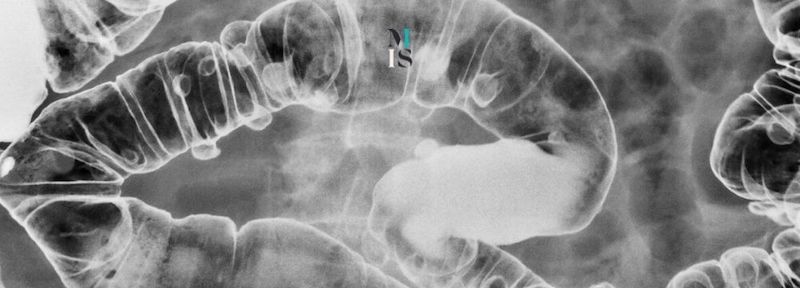Colon & Rectal
Seeing blood in the toilet after a bowel movement can be jarring. But does blood in the stool necessarily mean that you have a significant colorectal issue? The answer is nuanced; ultimately, seeing a qualified colorectal surgeon is the best course of action in most cases. However, let’s discuss some of the most common reasons for blood in the stool and what you should do about them.
Bright red blood usually involves bleeding closer to the anus, in the lower digestive tract. The blood is bright red because it hasn’t had time to coagulate. Common causes can include:
Hemorrhoids
Hemorrhoids represent the enlargement of the veins in the anus, much like varicose veins in the legs. You can have external hemorrhoids, which can be seen and felt, while internal hemorrhoids that are not visible can also produce blood and discomfort. If you feel fullness and pain when sitting or an enlargement in the anal region, you most often have hemorrhoids. Hemorrhoid creams can be effective early, but ligation or surgery may be required for moderate to severe cases.
Loose Stools
You may also see bright red streaks of blood on toilet paper if you have been recently ill with diarrhea or if you went to the bathroom often and have chafed the sensitive skin around the anus. Be mindful of how you can use the bathroom and your fiber intake. Going to the toilet very often may be a sign of gastrointestinal issues or poor diet, leading to loose and watery stools.
Anal Fissure
You may also see bright red blood from an anal fissure, a cut in, or chafing of the sensitive skin and muscle around the anus. This may or may not need to be repaired surgically, so seeing a colorectal specialist is a good idea.
Inflammatory conditions of the colorectal system such as IBD, colitis, and proctitis, can all cause bright red blood too.
While it may seem that all conditions that produce bright red blood are benign, this is not always the case. Pre-cancerous polyps and full-blown colorectal cancer can also cause bright red blood in the stool. Colorectal cancer incidence has been increasing in prevalence as our collective diets have worsened. As such, your go-to next step should be to see a qualified surgeon like ours at MIIS.
What About Dark or Tarry Stools?
If your bowel movements are dark and seem to have the consistency of tar, this typically represents a bleeding event occurring further up the gastrointestinal tract, anywhere from the esophagus to the large intestine, including the stomach and small intestine. The darkness of the stool is such because the blood has dried and been incorporated into the stool, giving it a darker color.
Dark and tarry stools are more concerning and should be evaluated soon. These can represent several conditions, including tumors, ulcers in the stomach, minor intestinal trauma, and more. However, dark stool can also be caused by iron supplementation, certain foods, and bismuth-containing products (usually taken for indigestion).
If you are experiencing a dark or tarry stool, and you’re sure it is not an emergency, schedule an appointment with one of our surgeons as soon as possible to get the proper testing and understand what could be causing the issue.










